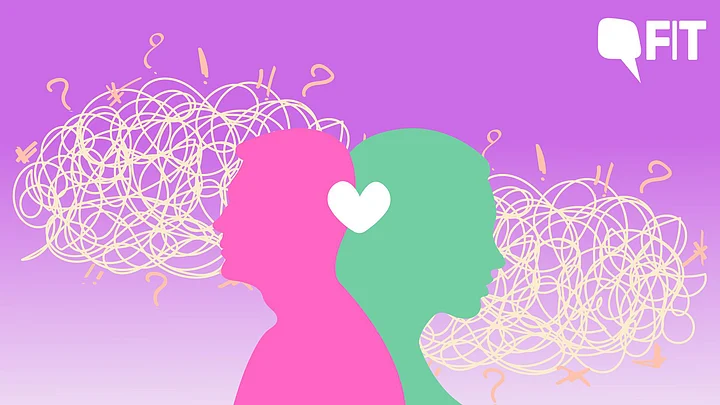"What will people think? That was the first thing my father said when I said I needed therapy."Nikhil, 24.
24-year-old Nikhil isn't the first man to be dismissed by his parents or by society when he tried to open up about needing therapy.
Even as conversations about mental health have become more commonplace, encouraging individuals to prioritise their well-being and seek help when needed, there still exists stigma, particularly for men.
Societal expectations often dictate that men be strong and unyielding, making it challenging for them to openly address their mental health struggles.
FIT spoke to men about their experiences and to experts to understand this better.
Challenging Societal Expectations & Overcoming Stigma
"Societal norms have long dictated that men should be emotionally resilient and self-reliant, creating barriers for men to acknowledge and seek help for their mental health challenges," Dr Manoj Saha, a psychiatrist, tells FIT.
What Dr Saha rings true for Srijan Mahajan, a 36-year-old musician and co-founder of Pause.
In 2013, Mahajan had episodes of severe anxiety attacks. He says, "That really scared me to be honest. I didn’t know who to reach out to for help. I felt helpless and thought I should just try to fix this by myself."
Like Mahajan, many men avoid seeking necessary support – some for fear of being perceived as weak or vulnerable, some due to the stigma associated with it.
Dr Shruti Sinha, Consultant - Behavioral Sciences (Psychiatry), Apollomedics Hospitals, Lucknow, tells FIT,
"One myth is that men are less emotional or incapable of expressing their emotions. Research and clinical evidence consistently show that men have complex emotional lives and can be just as sensitive as women."
Dr Sinha goes on, "Another myth is that seeking help for mental health is a sign of weakness in men."
But, she does feel that reducing this stigma would require "a multi-pronged approach."
"From education and awareness campaigns emphasising how mental health affects everyone, to normalising discussions about emotions and mental well-being, to dismantle stereotypes – encouraging open dialogue is necessary."Dr Shruti Sinha
A few things which can make a difference include:
Healthcare providers receiving training to recognise and address men's mental health concerns sensitively.
Fostering supportive environments where men feel comfortable seeking help, such as offering confidential and accessible mental health services.
Engaging male role models and public figures to share their mental health experiences can also inspire others to seek assistance without shame.
What can also help is encouraging open conversations and challenging gender stereotypes.
Changing the Narrative
But all this is easier said than done. As Dr Saha puts it, "Gay men face a double stigma – the societal stigma associated with mental health issues and the additional stigma tied to their sexual orientation."
For Nikhil, it took persuasion from a friend to realise that he might be in need of help. He says, "Small things were affecting me a lot. Then a friend suggested that these might be actual symptoms that require diagnosis. So he offered to take me to a psychiatrist at a medical college where he was studying."
"I was mostly thinking about all the things that aren’t in my control like my sexual identity, my way of approaching things, my style of attachment, my indecisiveness about basic and important things."Nikhil, 24.
When Nikhil finally reached out for help, he was diagnosed with anxiety and dysthymia (also known as Persistent Depressive Disorder) and put on anti-depressants and anti-anxiety pills, with the suggestion of taking up therapy too.
It was his friend's support that helped him through. Dr Saha concurs with this. He tells FIT,
"Building a robust support network is crucial for men seeking help for their mental health. These networks can include friends, family, support groups, or mental health professionals."
'Empathy, Acceptance': How To Bring About Change
Men who have successfully sought help say that freewheeling discussions create safe spaces for them to open up and find support, fostering a culture of empathy and acceptance.
"When I was building my start up, I started tweeting about my mental illness and I would get a bunch of DMs telling me I’m being negative and why do I have to be so 'depressed'."Srijan Mahajan, 36.
"But now that the cat was already out of the bag, I chose to continue to speak about it because if I felt this way, I don’t know how many people out there go through the exact same thing and are unable to speak," Mahajan says.

